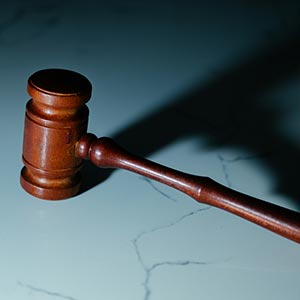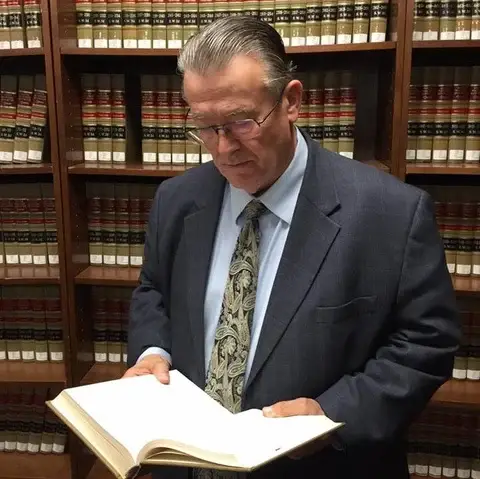By Thomas B. Swanson, J.D. – Academic Dean
Regulations play an important and necessary role in our society. They are laws created by government agencies that have been authorized through acts of congress. The legislative branch passes laws known as statutes which form the legal basis for establishing new governmental agencies.
The executive branch is charged with the enforcement and implementation of these new statutes, including the formation and management of governmental agencies. Often the judicial branch of government is required to interpret the laws themselves and settle disputes between affected parties and the government.
An example of a governmental regulatory agency is the United States Department of Labor Occupational Safety and Health Administration (OSHA) which was established by the Occupational Safety and Health Act of 1970.
The Code of Federal Regulations (CFR) annual edition is the codification of the general and permanent rules published in the Federal Register by the departments and agencies of the Federal Government.
A complete transcript of the above video presentation on governmental regulations is provided below or via printable PDF.
Good day. This is a presentation from the Center for Advanced Legal Studies located in Houston, Texas. And my name is Tom Swanson, an instructor here at the Center.
And I wanted to start out by telling you the name of this presentation, which is What is a Regulation, Anyway? I feel this is an interesting area to get into because there’s things you have to know before you can get the answer to that question.
The short answer is that a regulation is a law created by a government agency, namely the bureaucracy. And so I sit there and think about the past and how bureaucrats have been vilified.
I can remember over 40 years ago somebody making comments about the pointy-headed bureaucrats who run around making regulations and that sort of thing. So for many people regulation is a dirty word. But I think at least we should explore it a little bit and get you a sense of where exactly does this come from.
It’s a phenomena, I think, that we have so many terms that we hear every day and use commonly. But when you get down to actually understanding it and defining it, many times people are lacking. I find this out when I encounter new students here at the Center. And believe me, we have some very smart people that come here.
But somehow, there are these gaps that exist, maybe it was lack of interest or the timing of trying to teach it to people at a younger age was a bad idea, whatever. So now, as adults, you know that regulations are important, that they create political challenges and legal challenges and so on and so forth.
So let’s start out this way. It all goes back to the three branches of government established in our constitution. Now, I remember I first heard about the branches of government when I was in eighth grade. And I’m ashamed to confess I did not care. And I promptly forgot it.
They tried again in high school, but you know what they say, when you get into high school, how can you teach people that already know everything. So I don’t think I paid much attention to it there. Little did I know, it actually was very important information that our teachers were trying to impart to us.
Well, it goes like this. Under the Constitution, they have the three branches of government. They had the legislative branch. What does it do primarily? What it does is it passes laws. It decides what the statutory law shall be. We’ll get to other kinds of law at another time.
But the they create statutes. They create statutes on taxes. They create statutes on universities. They create statutes on airports. They have all kinds of statutes that pertain to all sorts in certain sorts of things.
However, you have another branch of government called the executive. And the responsibility of the executive branch of government, with respect to law, is enforce it. And I will tell you on a technical level I would say implement and enforce it. And then you have your third branch of government, the judicial branch, which primarily is involved in interpretation of law and hearing cases.
So let’s go back to an example I can give you. We know that we have many government agencies. Let’s take one. Let’s take OSHA, because people hear that term. And that’s the Occupational Safety and Health Administration. And its job, as a federal agency, deals with workplace safety. That’s a big, big issue.
Now, when the Congress created this law, and also authorized the agency to be involved in the enforcement of that law, it passed some general laws. In other words, it didn’t get down to the nitty gritty and talk about every single type of workplace situation. They were not prepared to do that.
Rather, they looked at various industries. And saw that there was a need for national workplace safety laws. And they got together and negotiated and held hearings and went through committee analysis and all this. And they came out with this Occupational Safety and Health Act.
Well, that’s all good. You know, the act, ultimately, was considered by both houses of Congress and approved. And then signed by the president.
Well, now you’ve got yourself a bona fide statutory law. OK? Now, what do you do to get the law enforced? The legislature has no ability in and of itself to enforce the law. It has no police department. Rather, it is a branch of government that focuses on legislation.
Under our system, what happens is the executive branch of government is responsible for putting these statutes into effect and enforcing them. Making sure that they are obeyed, in other words. So exactly how is this done? Well, it’s done through government agencies.
And so, for example, virtually every federal law is assigned to a specific government agency. Now, the reason that legislation is limited in its detail is because, in the case of OSHA, there are so many kinds of employment. There are so many differing kinds of hazards.
So basically, what happens is that the quote, “bureaucracy”, that group of non-elected civil servants in government who operate the day to day governmental activities. In other words, they are the ones that make the engine move. So what happens is that government agencies receive these laws. For example, in the case of OSHA, they created an agency.
In other situations, they’ll simply pass a law and decide what agency it should go to. Now, when I talk about the words implementation and enforcement, well, you have to know what the Congress intends. The Congress intends that, in a more general sense, that there be workplace safety.
 So now, this new agency had to analyze, what are the types of workplaces that have to be considered? And what are the threats in terms of safety issues that must be considered? So for example, you have people who work in construction. You have people that work in chemical plants. You have people that work in factories doing different kinds of manufacturing. And it goes on and on.
So now, this new agency had to analyze, what are the types of workplaces that have to be considered? And what are the threats in terms of safety issues that must be considered? So for example, you have people who work in construction. You have people that work in chemical plants. You have people that work in factories doing different kinds of manufacturing. And it goes on and on.
So the first thing that had to be done was there had to be some analysis of the different types of workplaces. And to begin writing rules that would be applicable to those industries. So these rules weren’t necessarily written by Congress, rather it was the government agency that was doing it. They were writing the rules.
In other words, I’ll give you one example. People who work around hazardous chemicals, they have they have a rule that the workplace must have what is called a material safety data sheet, which sets forth the nature of the particular hazardous chemical. And what safety equipment should be utilized in order to protect the worker from that hazardous chemical. So it’s an important guide.
So the point is is that the OSHA regulation indicates that if you have those hazardous chemicals in the location where the people are working, you must have there a material safety data sheet. So the workers can know what they’re facing and what safety equipment should be used while they’re working.
So at any rate, that’s what we talk about implementation where the actual rules are being created. I’m using rules in a sense of a very generic thing. But ultimately, what turns into regulations. OK?
And the regulations are based upon what the bureaucrats– and I’m not saying it is a dirty word– but what the bureaucrats perceive to be the intent of the law that is the statute created by Congress. So at any rate, once these regulations are created, these laws by government agencies, then they are put into effect.
And by that, if it’s a federal regulation, there’s a body of federal regulations called the Code of Federal Regulations, sometimes referred to as the CFR. At any rate, these regulations are given a CFR reference so they can be researched. And so people who need to know about these regulations can have access to them.
It used to be pretty cumbersome. But now, it’s a lot easier. So what is part of the implementation? Often times that seminars are established. So affected parties, parties affected by these regulations, can send their people in to learn what the regulations are and to make sure that they know to what to do in order to comply with the regulations.
So for those of you may be wondering what we do here in the paralegal programs in which we educate and train paralegals. Well, one thing is we recognize that there are jobs out there that involve compliance, where what happens is you have to have somebody from the company that has specialized knowledge of a particular group of regulations. So they can ensure that they comply with the OSHA law.
So you can’t do that very well until you understand what a regulation is in the first place. So again, it’s a law created by a government agency as part of its responsibility to implement and enforce laws enacted by legislatures.
You know, I’ve talked about the federal law. But each state also has a legislature. And each state also has regulations. So it’s not just a federal process. There’s also states who have the same structure, basically, as the federal government to where they have legislatures that make statutes. And that leads to regulations.
For example, in Texas, where I practice law and teach, our regulations are called the Texas Administrative Code or the TAC. And so every state has its own body of regulations that can deal with all kinds of issues. The most visible, I guess the best known, though, are some of the federal regulations.
Now, when we say enforce, what is that all about? Well, that means making sure that regulations are complied with. And so they actually have an enforcement apparatus. These may consist of lawyers, paralegals, investigators, inspectors, and so forth that go out and try to ensure that the regulations are understood and that there is compliance with them.
And then, of course, there’s oftentimes penalties for violations. And oftentimes, there is a little mini judiciary within some agencies where they have these, what they call, administrative law judges that hear disputes between people affected by the regulations and the government.
Now, an interesting thing– regulations are not part of a legislative process per se. In other words, you don’t run around voting on them and things like that. Rather, regulations are considered law. And if the legislature doesn’t like it, doesn’t like the particular law, then it’s free to take the necessary measures to ensure that that regulation that somehow offends the law is eliminated.
And this happens sometimes. And you have you have representatives of the particular agency appear before the legislature. And they discuss the particular regulations. And what the legislature thinks is intended.
Sometimes you have the courts get into it. What was intended by the regulation? Does it match up with what the congressional authority and intent is? In other words, there are barriers. That is to say that you can’t have a regulation that’s contrary to a statute. That’s not considered acceptable.
But what will happen sometimes is there will be regulations that are initiated that the legislature may not have anticipated. And here’s why. A legislature usually has a fair number of talented people there. But they aren’t always knowledgeable in the very specialty aspects of what the regulation covers. OK?
So for example, you have people in the legislature that want to emphasize job safety, but they don’t understand what it takes to build a high rise building. They don’t understand that you have a general contractor and the subcontractors and the fabricators and suppliers and all those different people. And what their roles are and responsibilities and so forth.
So they rely on people with specialty knowledge to prepare these regulations so that they are understood by the industry that they’re regulating. OK? So again, you know you have this situation where it becomes a political issue sometimes about you have these regulations, but who elected them? Who made these people the sheriffs?
Well, our system did because the thing is is that that’s the mechanism, especially in a modern world, by which a government has its laws put into effect and enforced. And so the thing is is that, who can change regulations? Well, the executive branch can change regulations to a degree.
In other words, the thing is they just can’t say we’re tired of all regulations. We’re going to eliminate them all today. It doesn’t work like that. You’re working around the edges because sometimes regulations have unintended consequences, like many laws do.
And so you may have a regulation that you didn’t think would impose a significant burden on a business community or locale in which the regulation is being enforced. And then you just have to find out. And then they go through the process of trying to analyze that and come up with another solution.
Sometimes the people involved have to go to the legislature and say, look, there are these regulations out there that are used to enforce this law. And that’s not cutting it. It’s causing all of these problems.
But make no doubt about it, regulations are law. OK? They are not suggestions. They’re not anything. They are law. Remember, regulation, a law created by government agency.
And where does it come from? It comes from the executive branch of government. Why? That is how legislation gets put into effect and enforced, whether it’s workplace safety, whether it deals with our financial markets and the stocks and bonds and so on and so forth that many people don’t understand very well.
It deals with all kinds of things. It deals with environmental issues. It deals with factors of science in the scope of scientific inquiry and so on and so on. So regulations are, they are very important. And they also have oftentimes specific and serious effects on industry and individuals.
So keeping everything in balance is what you hope government will do because it is government that puts the laws out there for all of us to have to obey. Well, that concludes this presentation. And there’ll be others. Feel free to come back and visit us. Thank you.















